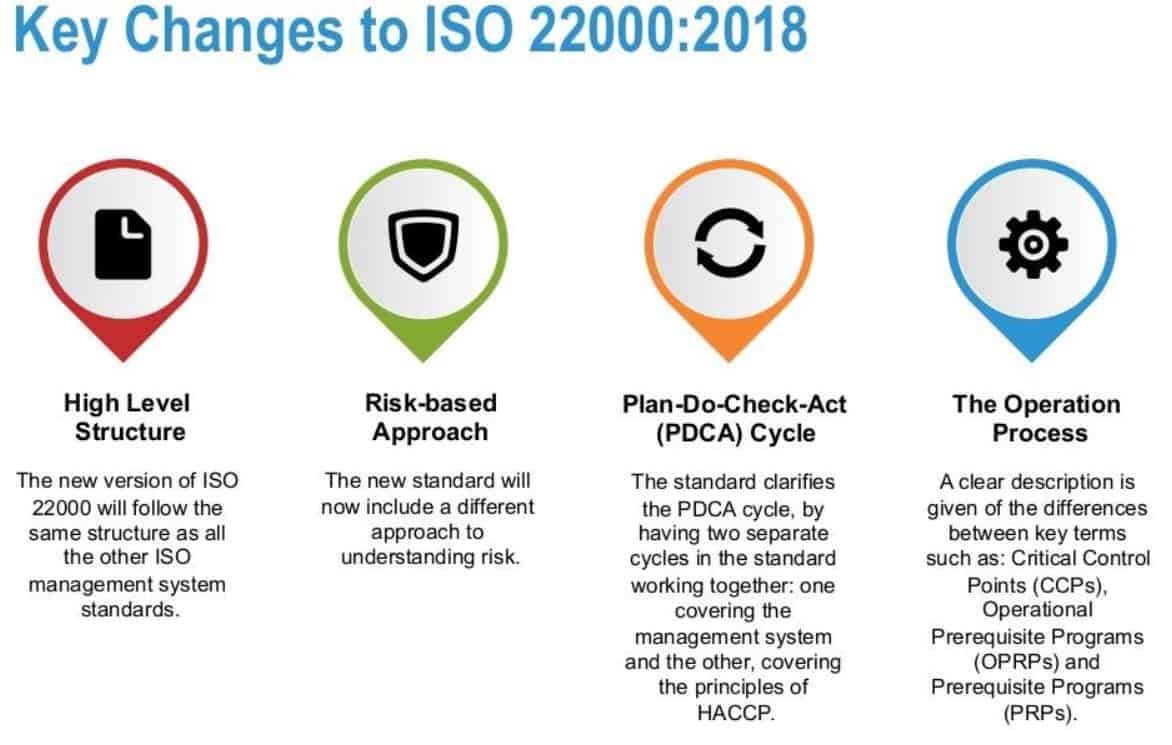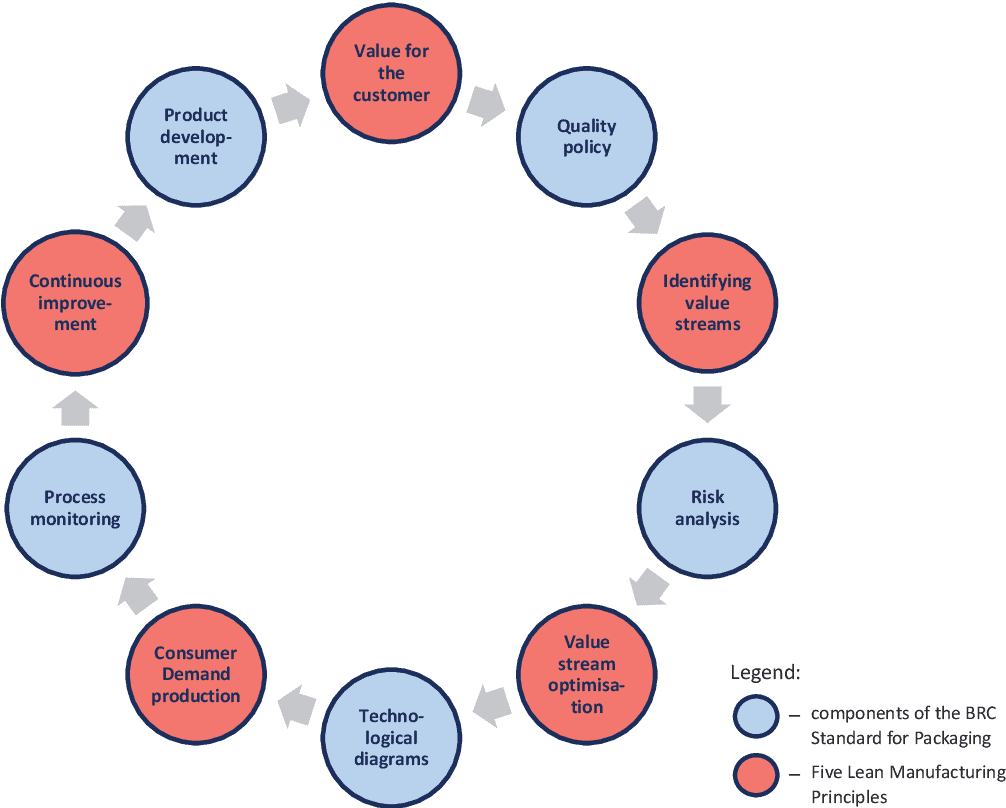Food is a high-risk business, next only to pharmaceutical and hence getting it right the first time is critical. Any lapses can result in damage to human health which may also result in death. Hence, safety of food must be given the topmost priority. Safety means a lot of things, the first one being devoid of any hazards, physical, chemical or biological which can cause harm. The only way to ensure this is through implementation of rigorous processes to control the hazards. Certifications are a way to benchmark and show case that the systems and processes are working.
Certification is a document of proof that gives recognition to the applicant organizations to say that their systems and processes have been evaluated independently without any bias and have been verified to work. A well implemented food safety management system certification ensures there is a traceability mechanism which can help control the situation, if one were to occur due to a breakdown in product or processes. This also helps communicate with the customer the organization’s competency and commitment to the standards both global and local.
There are multiple standards and certifications to choose from. While all of them have the same core principals, there are some variations in the number/types of controls that are managed by the system. We start with the fundamental one which forms the backbone of all standards, systems and certifications.
HAACP
HACCP stands for Hazard Analysis and Critical Control Point. This was created by the WHO and UN’s Food and Agriculture Organization to develop international guidelines, standards, codes in maintaining food safety. HACCP is a systemic, analytical and scientific approach to controlling biological, chemical, physical hazards during the food production.
HACCP takes care of the food safety at every step of the production and supply chain until it reaches the consumer’s plate. Having HACCP in place within a food business, not only improves food safety, but also ensures to have a systematic flow of the food chain in our economy. This spreads awareness on food safety among consumers, promotes internal safety reviews with an increase in customers confidence while buying a product.
Food Business Operator (FBO) with HACCP implementation ensures food safety for its customers at every given step. While the certification itself is not compulsory, most of the country specific regulations are based on this principal. The ‘The Food Safety and Standards Regulation 2011’ also requires an FBO to have an FSMS (Food Safety and Management System) plan based on the principles of HACCP.
ISO 22000
ISO 22000 is an international standard setting out the requirements for food safety management systems (FSMS). This is one of the most popular certifications in India. This not only includes the HACCP but also the requirements of Quality management system certification.

It demonstrates its ability to control hazards and ensure food safety in the entire supply chain, from farmers and ranchers to processors. Having said that, it develops an internal system for hazard and risk analysis by involving leadership, interactive communication, system management, hazard risk evaluation, prerequisite programs (PPR), continual improvement.
ISO 22000 is designed to secure the supply chain, with its principles of integrated management systems, developed by the food safety experts, in co-operation with the HACCP principles of the Codex Alimentarius and other ISO standards of management systems.
Some of the important benefits when getting this certificate are:
- Enables compliance with legislation such as,
- Regulation 852/2004 “Hygiene of food products” (HACCP)
- Regulation 178/2002 “Traceability and Food Safety”
- Regulation 183/2005 “Hygiene of feed” (HACCP)
- Minimizes occurrence of low-quality and health-risk foods.
- Improves consumer confidence in products and builds trust.
- Provides an effective, comprehensive and a preventive measure over food safety.
FSSC 22000
Food Safety Standard Certification 22000 is a GFSI (Global Food Safety Initiative) compliant standard food safety scheme which defines requirements to provide certificate for FSMS. This system comprises of ISO 22000, ISO 9001, ISO/TS 22002-x standards, pre-requisite programs (PRPs) and FSSC 22000 additional requirements, to specify the guidelines which have to be followed in a management system, in order to ensure the safety of food.
This is applicable to a broad spectrum of organizations irrespective of their size or complexity in food manufacturing or food service industries. Any FBO related to manufacturing, processing, supplying or planning to supply / distribute, major food retailers or any food branded company can apply for FSS 22000 certification. Any ISO 22000 certified business owners will be required to meet their respective TS and additional requirements set by FSSC 22000 to be certified for FSSC 22000. FSSC 22000 is supported by the European Confederation of Food and Beverage Industries (CIA), and is approved by the Global Food Safety Initiative, GFSI (Global Initiative for Food Safety).
Having the FSSC 22000 certification has some main benefits. The FSSC 22000 certification –
- Is independent of personal competency and has high reliability on FSMS.
- Has global recognition and opens the market to export products.
- Encompasses the legal obligation from Food Safety and Standards Act, Food Safety and Standards Rules, related to product and service delivery
- Minimizes compliance inspections.
- Increases customers, stakeholder’s confidence and community faith.
BRC Global Standard for Food Safety
BRC Global Standard for Food Safety, developed by UK Retailers, is a certification standard specifying requirements for retailers, manufacturers, processing and food packaging industries. It provides a framework to manage product safety, quality, integrity, legality and, monitors operational controls during every criteria of the food chain. Standards include the requirements of the HACCP (Hazard Analysis and Critical Control) system in accordance to the Codex Alimentarius, a documented quality management system, as well as the control of requirements of the environmental conditions of the facilities, products, processes, and personnel.

BRC enjoys global recognition (GFSI) and was developed with the aim of –
- Helping distributors comply with the legal obligations of food safety.
- Guaranteeing the highest level of protection for the consumer.
- Encouraging developing product safety culture.
- Encouraging sites to develop systems for security and food defense.
Benefits of having BRC Certified –
- It minimizes waste, complaints, recalls and rejected products.
- It reflects best practices and sets a common sense, risk-based approach to the product safety and certification.
- It is the first standard to be GFSI- bench-marked, hence boasts globally recognized.
- It ensures the customers confidence in food safety programme and supply chain management.
- It protects the brand and the customer.
- It is the only standard to apply food safety culture assessment and the certification can be used as a marketing tool by displaying the logo within their premises and website.
With a growing population around the world, there is an increasing demand in food supply, not just ensuring affordability, but also safety and good quality. It is both the consumers’ and the health authority’s top concern. It is also equally important to be able to trace back the causes if there arises a problem at any point of the food chain. To achieve food safety, quality and integrity, and maintain internal standards for documenting the safety and management systems, the only way is to abide by strict norms by enforcing them within the organization for its successful run. Certifications are a great way to bring about a discipline within the organization to ensure safe and hygienic food.